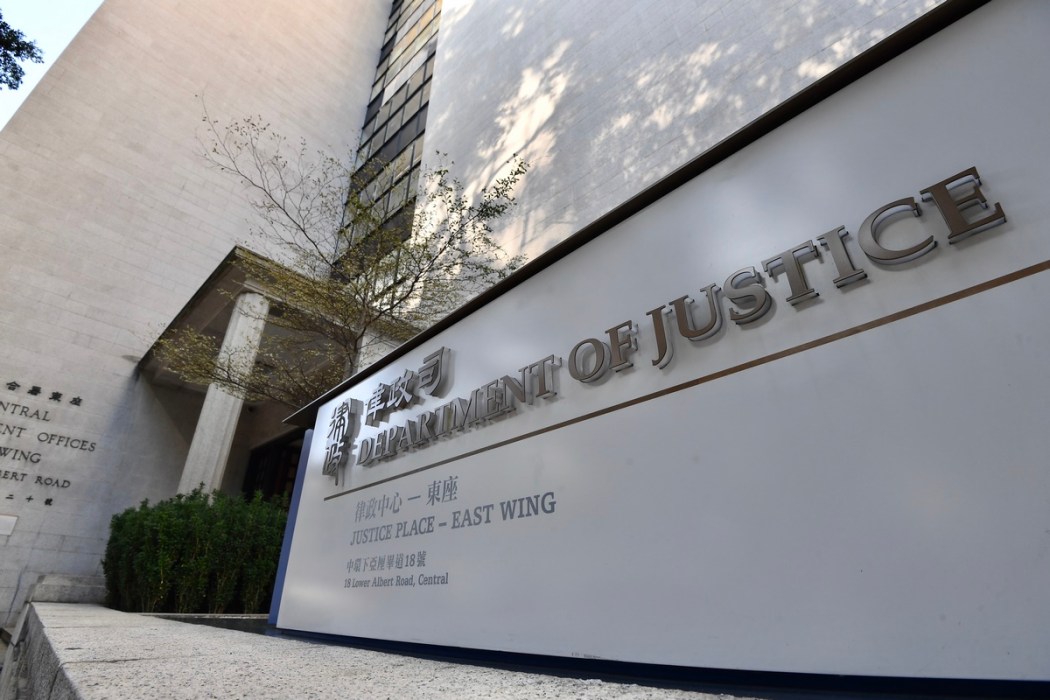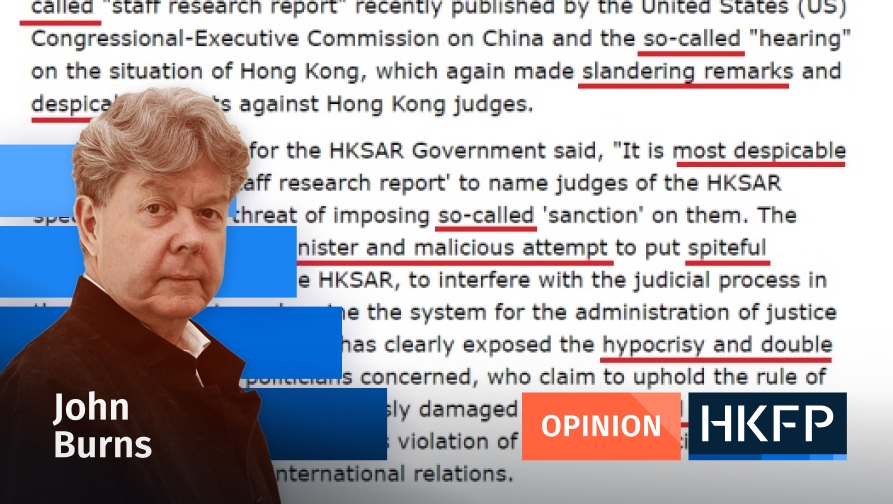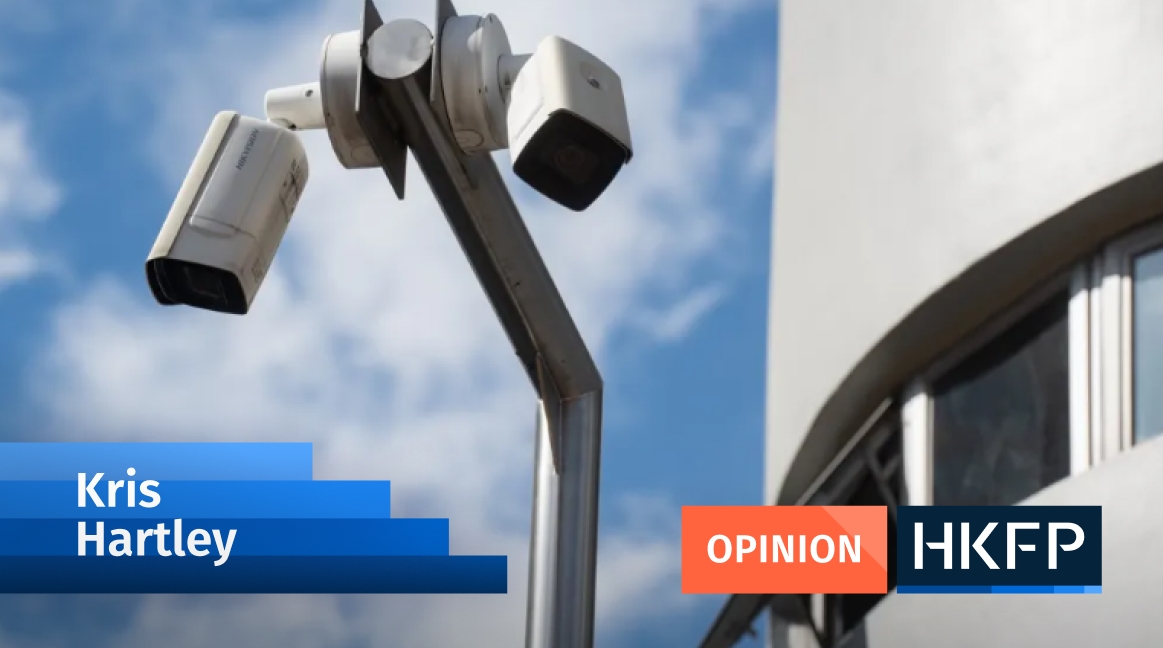The prosecution of Jimmy Lai, Martin Lee and sundry other conspicuous democrats staggers from pothole to pothole. British QC David Perry decided not to accept the prosecution brief after getting a good deal of stick in the UK over the ethics of the gig. Now, it is reported, the Department of Justice proposes to brief local star Benjamin Yu, SC.
The problem with this is that Jimmy Lai is being defended by Audrey Eu, who despite the different spellings in English translation happens to be Benjamin’s elder sister.

Apparently the Department of Justice supposes this to be no more than an entertaining coincidence. Not so, alas.
The Code of Conduct for Barristers promulgated by the Hong Kong Bar Association states (at 6.2 (f)) that a barrister must refuse a brief if “by reason of any connection with the Court or a member thereof, the impartial administration of justice might be or might appear to be prejudiced.”
Some further illustration is provided in an annex. The examples given concern cases where the barrister is related to the judge. The question of a relationship with an adversary’s advocate is not considered. Perhaps it has never come up. But there is also paragraph 6.2 (i) which says a brief must be refused “if, for any other reasons, there is or appears to be a risk that he will be hampered in his ability to discharge, or be embarrassed in the discharge of, his professional duties.”
Consideration of this matter usually starts with a quote from Lord Brougham, who pioneered the genre of messy Royal divorces by appearing for Queen Caroline, as she then was, against George IV in the House of Lords (which was where you had to go for a divorce in 1820).

Brougham’s remarks go like this: “[A]n advocate, in the discharge of his duty, knows but one person in all the world, and that person is his client. To save that client by all means and expedients, and at all hazards and costs to other persons, and, amongst them, to himself, is his first and only duty; and in performing this duty he must not regard the alarm, the torments, the destruction which he may bring upon others.”
The point here is that the danger is rather different from that posed by appearing before a related judge: it is not a question of bias – your lawyer is expected to be biased, in your favour – it is a question whether your legal gladiator will exert him or herself to the full if the adversary is a spouse or family member, or whether he will be seen to have done so by spectators, particularly those dissatisfied with the outcome.
Writers on this topic rarely resist the temptation to mention a movie – Adam’s Rib, made in 1949 – about a husband and wife who find themselves on opposite sides of a trial for attempted murder. The husband prosecutes and the wife defends. The movie is praised for its early recognition of the possibility that women will become lawyers. But the plot is criticised on the grounds that having two spouses on opposite sides of a serious criminal case would not have been allowed then and would not be allowed now.

After much foraging on Google I have to say that this rule, if it is a rule, is rarely enunciated explicitly. It may perhaps be inferred from the Hong Kong prosecution code, which says: “A prosecutor must not be influenced by: (a) any investigatory, political, media, community or individual interest or representation; (b) the personal feelings or beliefs of the prosecutor concerning the offence, the suspect, the accused or a victim of crime; (c) the possible effect of the decision on the personal or professional circumstances of those who have the conduct of the case.”
This is put more briefly in the UK’s Code of Conduct for barristers, which states (at paragraph 302 – it’s a long code) that a barrister must “prosecute and protect fearlessly and by all proper and lawful means the lay client’s best interests and do so without regard to his own interests or to any consequences to himself or to any other person.”
The Uniform Bar rules of New South Wales say “a barrister may refuse a brief if there is a personal or business relationship between the barrister and the client or another party, a witness, or another legal practitioner representing a party.”
The matter gets more coverage in North America, mainly because so many more women now become lawyers that the question of spouses on opposite sides could crop up quite often – although according to one writer it doesn’t; apparently spouses generally manage to avoid each other. It is estimated that half of all the lawyers in the USA are women and half of those women are married to other lawyers.
If my statistical extrapolation from this statistic is correct it means that if you pick a lawyer at random there is a 50:50 chance that he or she will be married to another lawyer.

An additional problem there is that generally in the US prosecutors are full-time prosecutors, so if you are a criminal specialist who is not employed as a full-time prosecutor you will have to be a full-time defender. And you may be employed as such. I found three instances where couples had asked their local ethics authority if it was acceptable for one of them to work in the District Attorney’s office and the other as a Public Defender.
A typical answer (from New York): “The spouse of an assistant district attorney can work in the same county as an assistant public defender, though husband and wife should not appear on opposite sides of the same matter.”
This may be distinguished from civil matters where, as the North Carolina State Bar succinctly puts it: “A lawyer related to another lawyer, e.g., as parent, child, sibling or spouse, ordinarily may not represent a client in a matter where that lawyer is representing another party, unless each client gives informed consent.” In other words it’s OK in civil cases if you tell both the clients and they don’t mind.
The American Bar Association is refreshingly explicit on the position in criminal matters: “The prosecutor whose current relationship to another lawyer is parent, child, sibling, spouse or sexual partner should not participate in the prosecution of a person who the prosecutor knows is represented by the other lawyer.”

So there you have it. We may add that because the right to a fair trial is generally held to include the right to the lawyer of your choice (one of the many reasons why you don’t get a fair trial in China) the task of avoiding this type of conflict of interest falls on the prosecution.
I do not doubt for a moment that the Yus, or Eus, are experienced and competent professionals who are confident that they can represent their respective clients with appropriate levels of enthusiasm even if they are on opposite sides.
Whether the Department of Justice should have arranged this in-the-family fight by picking Mr Yu is another matter. This does not accord with the highest international standards and will reinforce Hong Kong’s reputation as a place where the Rule of Law is falling into disrepair.
Support HKFP | Policies & Ethics | Error/typo? | Contact Us | Newsletter | Transparency & Annual Report | Apps
| HKFP is an impartial platform & does not necessarily share the views of opinion writers or advertisers. HKFP presents a diversity of views & regularly invites figures across the political spectrum to write for us. Press freedom is guaranteed under the Basic Law, security law, Bill of Rights and Chinese constitution. Opinion pieces aim to point out errors or defects in the government, law or policies, or aim to suggest ideas or alterations via legal means without an intention of hatred, discontent or hostility against the authorities or other communities. |
Help safeguard press freedom & keep HKFP free for all readers by supporting our team

More HKFP OPINION:
HKFP has an impartial stance, transparent funding, and balanced coverage guided by an Ethics Code and Corrections Policy.
Support press freedom & help us surpass 1,000 monthly Patrons: 100% independent, governed by an ethics code & not-for-profit.










